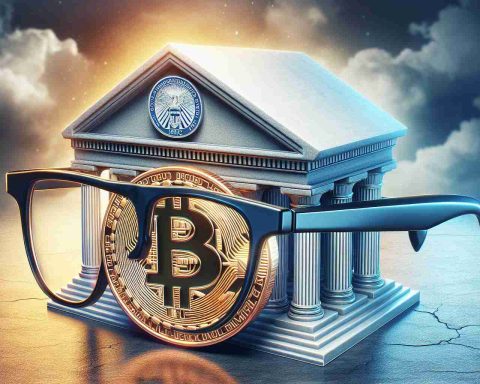- The U.S. is considering establishing a strategic Bitcoin reserve, emphasizing the importance of clear crypto regulations.
- David Sacks, appointed by President Trump, highlighted this initiative as a priority for the administration.
- Despite the announcement, there was no significant positive impact on Bitcoin’s market value.
- Current challenges include global economic pressures from trade disputes and a lack of specific regulatory details.
- Senate confirmations for key appointments are necessary before moving forward with regulatory frameworks.
- Investors are advised to be patient as the government works through the evolving cryptocurrency landscape.
In a much-anticipated press conference, David Sacks, the influential “czar” of AI and cryptocurrency at the White House, unveiled that the U.S. is exploring the potential creation of a strategic Bitcoin (BTC) reserve. Tasked by President Donald Trump, Sacks emphasized this initiative as a priority, aiming to bring clarity to crypto regulations.
Despite the buzz, the announcement fell flat, failing to spark enthusiasm in the cryptocurrency market. Bitcoin’s value continued its downward spiral, reflecting a global downturn exacerbated by Trump’s recent trade wars against Canada, China, and Mexico. Investors eagerly awaited specifics, but instead, Sacks offered little that could ignite short-term growth in the blockchain sector.
Adding to the uncertainty, the administration is waiting for Senate confirmations of key appointments to proceed with crypto regulatory frameworks. Sacks reminded the audience that tangible measures are still a ways off, leaving the community to ponder the future of cryptocurrency in America.
Meanwhile, Trump’s administration is pushing forward with supporting crypto growth, as evidenced by a recently signed decree, which mandates a task force to deliver findings in six months. Meanwhile, Bitcoin struggles to maintain its footing, hovering below the $100,000 mark.
The takeaway? While the possible formation of a Bitcoin reserve raises curiosity, investors must remain patient as the government navigates through regulations and confirmations. The cryptocurrency landscape is poised for changes, but for now, it faces hurdles that could stifle momentum. Stay tuned for updates!
Striking Gold in the Digital Dust: The Future of Bitcoin and U.S. Policy
The Future of Bitcoin in U.S. Policy
In the face of new initiatives and ongoing regulatory discussions, the Bitcoin landscape is continuously shifting. David Sacks’ announcement concerning a potential strategic Bitcoin reserve signifies a notable shift towards acceptance and integration of cryptocurrency by the U.S. government. While the immediate market reaction may not reflect optimism, several implications remain relevant for investors and crypto enthusiasts alike.
Key Insights and Predictions
1. Market Forecasts: Analysts predict that if a Bitcoin reserve is established, it could stabilize Bitcoin’s price volatility and improve institutional adoption. The market is often influenced by regulatory clarity, and this initiative hints at a more solid foundation for future legislation.
2. Regulatory Trends: With the emphasis on regulatory frameworks, the U.S. is poised to lead in creating standards for cryptocurrency operations. This could position American companies favorably in an increasingly globalized digital currency market.
3. Comparative Analysis: Other countries, such as El Salvador, that have adopted Bitcoin as legal tender could serve as case studies for the U.S. If successful, these models may provide a blueprint for similar adoption strategies.
What Are the Most Important Questions?
1. What impact will the creation of a Bitcoin reserve have on cryptocurrency regulations?
The introduction of a strategic Bitcoin reserve could encourage clearer regulations, fostering a more robust environment for crypto investments and innovations. As regulations become more defined, they might attract institutional investors who have been cautious in the unregulated market.
2. How is the U.S. crypto market reacting to the uncertainty surrounding regulations?
Current investor sentiment remains cautious, reflecting broader market volatilities. Until definitive regulatory practices are established, many investors may adopt a wait-and-see approach, impacting short-term growth in the crypto sector.
3. What role does global market behavior play in Bitcoin’s valuation?
Global economic trends, including trade wars and financial crises, significantly influence Bitcoin’s market position. Price movements are often tied to macroeconomic events, and a strategic U.S. reserve might help buffer against these influences, enhancing Bitcoin’s perceived stability.
Additional Considerations
– Limitations of Current Frameworks: The lack of legislative progress could hinder technological innovations within the blockchain space. Investors should stay informed about upcoming Senate hearings that may either slow down or accelerate industry growth.
– Security Aspects: With increasing government interest in Bitcoin, cybersecurity concerns regarding asset protection and fraud prevention will take precedence in new regulations.
– Sustainability Issues: The environmental impact of Bitcoin mining has gained attention, and any governmental position may also address how Bitcoin aligns with green initiatives.
Related Links for More Insight
The journey for Bitcoin in American policy is unfolding, and while immediate reactions may be tepid, the underlying direction could reshape the cryptocurrency landscape significantly. Stay tuned for ongoing developments!











